Lawyer SEO: How Can Lawyers Get More (and Better) Customers?
What is Lawyer SEO?
As a lawyer, you need clients, don't you? But your exceptional mastery of the constitution and the legal process in your jurisdiction alone will not always directly translate into the success of your law firm.
Clients need to know about your excellence…they need to find you when they need your services. The question is how do they find you?
Sorry to break your heart, but that doesn't work as excellently as before. With a hyper-digital 21st century, thousands of your potential clients are looking for you online. Specifically, a study by the National Law Review revealed that 96% of people looking for legal advice use search engines to aid their research process.
As you read this, tens of potential clients are on search engines like Google, Bing, and Ask looking for your law firm. But are they finding you?
This is what Lawyer SEO is all about. It involves a batch of techniques, strategies, and tactics to increase your attorney website's online visibility by raising your ranking on search engines.
Why is SEO important for lawyers?
Search engines are an enormous source of leads. For context, Google records at least 3.5 billion searches per day. A sizable fraction of these searches are clients looking for legal services.
A Brightedge study reveals that the average site accrues 53% of its traffic from search engine optimization. This means if you are not on the first pages of search engine results for the queries related to legal services, you are losing a fortune.
But SEO is one curious niche where the winner tends to take it all!
But SEO is one curious niche where the winner tends to take it all.
Will you believe that 90% of people don't go past the first page on Google's search results? This is what SEO warfare is all about: getting you to the top!
Let us assume your site is on Google's first page for a search term like "personal injury lawyer near me".
This means whenever anyone types that query on Google, your law firm website will be among the first that shows up in the results they get.
You guessed right, you are in serious money!
Law firm SEO is more than just stacking your websites with traffic. It has a remarkable conversion rate as a lead acquisition channel.
According to a 2014 FindLaw U.S. Consumer Legal Needs Survey, 74% of consumers who visit a law firm's site call the office number.
Guess you are drooling already about Law Firm SEO. But don't get too fast, this search engine optimization is pretty technical.
Littering your website with legal content will not get you on the first pages of search engines like Google (and yes, Google hoards 92.18 percent of the search engine market share).
In the next section, we will explore the crucial factors with which search engines rank your site. A combination of your scores on these parameters determines where you land on their search results.
Ready?
Search engine ranking factors you should care about

Your content
There is no denying that content is king. But just any type of content will not do in Law firm SEO. You need top-notch content that is highly optimized.
Google – just like other search engines – is pretty selective about the content its show their users. Clearly, you wouldn't blame Google. With over 246 million unique visitors from the U.S. alone, Google is fanatic about giving its users the most satisfactory results for their search queries.
More information, no problem
This explains why Google tends to favor sites with longer and information-rich content in their ranking. The more emphatically your site covers a topic related to the legal space, the higher your website's chances of showing higher in SEO results for that topic.
More than the length and information density, the content must be properly optimized so that search engines can rank it. Keyword optimization is a massive part of this.
Keyword placement
For your content to rank higher on search engines, it needs a target keyword that would be strategically distributed across the length of the content.
Relax, don't go jampacking your content with keywords just to rank higher. Few things turn Google off as much as spammy content.
Your keywords must be naturally spread across your content in a way that it doesn't affect the reader experience. The primary keyword could be supplemented by related phrases called LSI (latent semantic indexing) keywords.
Authoritativeness
More than that, your content must be authoritative. Search engines don't spread conspiracy theories; they disburse proven and authentic information.
This is why Google promotes content produced by subject matter experts in their rankings. Such content is often juiced with supporting resources like statistics, researches, and surveys.
How usable is your content?
Usability is another vital part of your content. Your website visitors already have enough troubles in their lives. Reading your content shouldn't add to this. Indeed, search engines love easily consumable content.
Your content should be seamless reading, understanding, and navigating. This can be achieved using bulleted lists, breaking up a chunk of content into multiple paragraphs and subheadings.
Remember, the average site visitor has a low attention span. Once it gets hard to use your content, you can be sure they are leaping off your site.
STOP Cold Calling!

Make customers chase you instead!
Get more Customers now!
Links

Google and other search engines prioritize the number and quality of links your website content accumulates. Google tends to see every quality link you accrue as a "vote of thanks" for producing top-notch content.
When your law firm site picks up a significant number of high-quality links, it automatically suggests to Google that your stuff is good and appreciably value-adding.
With this conviction that that content is rich in value, Google raises its ranking to appear on the top pages of related search queries.
When a reputable website links to your website (organically and voluntarily – not paid), search engines extract an "SEO juice" from that backlink that adds to your SERP (Search engine results pages) rankings.
Take note that the link must be in the content (of the site linking to you), not in their sidebar or footer. Certainly, the authority of the site contributes to the SEO results you extract from that backlink. Domain authority and page authority are two critical metrics employed in determining the quality of a backlink.
The frequency of outgoing links on the site linking to you matters as well. A backlink from a site that links out to thousands of websites contributes less to your search engine optimization than a backlink to a website that links to tens of sites.
Sounds interesting?
User Experience
Google uses an artificial intelligence signal called Rankbrain to determine the user experience of your content. Rankbrain combines user data on your content to determine how suitable or relevant they are for a particular query.
According to Greg Corrado, a senior Google research scientist, Rankbrain is the third most important ranking factor Google considers. Precisely, Rankbrain only comes after content and links in Google's priority of ranking factors.
Rankbrain attempts to get as much clue into user intent and accordingly sequence the websites appearing on their search engine results. Effectively, Google wants to measure how well a visitor to your site interacts with or enjoys your content.
When users engage more with a particular piece of content, Google predicts that content reasonably assuages their queries.
Consequently, such content tends to appear higher on results.
Google measures user engagement with metrics like clickthrough rates (CTR), dwell time, and bounce rate.
The CTR measures the number of times Google users are clicking on your website in their search results. CTR essentially refers to the attractiveness of your content on search engine results.
Your content would be more compelling to Google users (to click on it) when you appropriately optimize your descriptions and titles.
This gives Google an idea of the relevancy of your website for that keyword. Higher CTR means your website is applicable for that keyword, imploring Google to display it more (or even higher) in users' search results.
How about bounce rate? Bounce rate refers to the percentage of people who click your website and immediately return to their search results.
You don't need to be a rocket scientist to know that higher bounce rates tell Google that users don't enjoy your content or find it valuable. Consequently, Google would decrease the visibility of such a website by downgrading its ranking.
Another data input Rankbrain uses to measure user experience is dwell time. This is the amount of time visitors spend on your website after clicking it on their search results.
Feel free to see this as the converse of bounce rates. Being that humans tend to stay longer in a place where they enjoy themselves, Google interprets higher dwell times as higher relevancy and usefulness of that content to its users (for that keyword).
What follows? Higher ranking!
Mobile-friendliness
The bulk of potential customers searching for your law firm website are using their smartphones. Come on, how were you going to doubt that when there are 3.5 billion smartphone users on our planet today?
63% of all Google searches are done on mobile devices. Therefore, you would be losing a lot if your attorney site is not optimized to a mobile user audience.
This refers to the mobile-friendliness of your website. Every day, fewer users are accessing your website from desktop and laptop devices. Yes, the smart chaps at Google know this.
With Google's mobile-first indexing, mobile-friendly websites now get higher rankings. Do you know that by the end of 2018, Google had used mobile-first indexing on over half of the pages on its SERPs?
What more, Google has been applying mobile-first indexing to all its new websites since July 1, 2019. So what makes your law firm website mobile friendly?
First, your website must be responsive. This is such that it automatically resizes to the user's device accessing it. It must be easy to navigate your website when being accessed from a mobile device.
The fonts on your website must be big enough to be easily read on a small screen. How about those annoying ads? Ensure no part of the vital content is hidden by the ads appearing on your website.
Social Signals
It would be wrong to think search engines isolate your website rankings from your website's social activity. For example, search engines factor in the social media sharability of your content into your rankings.
Here is something to make you value your tweets and Facebook likes more: a Cognitive SEO's study of 23 million shares discovered a strong relationship between a piece of content's search engine ranking and its social shares.
Check some of the websites ranking highest on Google. You tend to see that they pick up a hefty number of social shares.
This is not unconnected to the fact that more Facebook shares and Twitter links increase the traffic to your website, even picking up backlinks in the process.
Yes, Google doesn't value the Twitter links and Facebook shares your website picks up as much as the backlinks from authoritative websites, but your social shares definitely matter.
Maximizing Keyword Research for Law Firm SEO

Remember we said just loading your website with content isn't a guarantee of higher results in SEO for lawyers. Keyword optimization is critical. To get this right, you must also get your keyword research right.
Keyword research basically involves identifying those queries (or terms) that users are inputting into the search bars of search engines.
These could be phrases like "hire a family lawyer near me", "criminal attorney near me", or "how to get an immigration attorney".
So when you accurately identify these keywords, you can optimize your content around these keywords so that when search engines crawl them, they can pick up those keywords and match them to corresponding search engine queries from users.
How to choose keywords for Law Firm SEO
As a law firm, there are thousands of keywords you could target with your content. But are they all worth targeting? NO!
Considering that quality content takes a lot of time and money to produce, it is only wise to maximize the search engine optimization prospect of such content by optimizing it around keywords with the highest ROI (return of investment).
Before we touch on choosing the best keywords, let us look at the various types of keywords you can exploit for your Law firm website.
Types of keywords you can leverage
There are three fundamental types of keywords in search engine optimization. These are the body, head, and long-tail keywords.
Head keywords are the shortest types of keywords. This can be a one-word query or a combination of two words into a phrase. An example here could be a lawyer or criminal lawyer.
Given their genericness, it is only normal that more people would be searching for them on search engines. Consequently, head keywords have the highest search volumes.
Next are body keywords. These keywords tend to combine two or three words. For example, a body phrase could be "hire a lawyer".
They are more specific than head keywords. They have lesser search volume compared to head keywords. Notwithstanding, the search volume is yet impressive.
Long-tail keywords are far more niched or streamlined. They tend to combine at least four words. For example, a long tail keyword in attorney firm SEO could be "how to get a personal attorney".
Yes, they have a lower search volume compared to head and body keywords. This is because fewer people are typing these keywords into search queries given how specific they are.
It has been observed that visitors derived from long-tail keywords have stronger buyer intent than those from head keywords.
In most cases, people who search head keywords are just looking for educative information, not necessarily prospective customers.
When choosing keywords in SEO for lawyers, the overall idea is to select phrases that get reasonable search volume but are not too difficult to rank for. This brings us to the keyword difficulty.
How competitive are your keywords?
The keyword difficulty measures the competitiveness of a particular keyword. You will understand that given how generic head keywords are (and their consequent oversized search volume), the competition in SEO for lawyers to rank for them would be overwhelming.
You definitely don't want to attempt ranking for a head keyword as generic as "law firm". Yes, the monthly search traffic is mindblowing, meaning tons of customers if you manage to rank for them.
But the bad news here is that some of the biggest law firms in the world with bottomless pockets (in terms of resources) are competing for these keywords.
The eminent likes of Sullivan & Cromwell LLP, Kirkland & Ellis LLP have millions of dollars to spare for SEO. A luxury you may not yet boast now.
This is why it makes sense to cut your coat to your cloth and go for less competitive keywords in SEO for lawyers. Long-tail keywords like "how to find legal help" may have lesser search volume and consequently lesser competition.
This can be another – less exhausting – way to get to the first pages of search results and plaster your website on your prospective customers' eyeballs.
So the trick is about finding the keyword with a reasonable monthly search volume but has far less keyword difficulty or competition. For us, this means going as niche as possible with the keywords you optimize your content around.
Keyword research techniques you can try today
Taking a clue from your competitors
Law firm SEO is no longer a secret. The chances are high that your competitors are already investing in SEO for lawyers to rank their websites higher on search engines.
Those that have been successful at this have targeted keywords and optimized their content around them. You can steal these keywords from them.
This is easy. All you need to do is visit the highest-ranking websites in your specific legal niche and examine the keywords they are ranking for.
Analyze these keywords and identify those you can possibly rank for with minimal capital, time, and effort. Free SEO research tools like UberSuggest, Keyword Everywhere, MozCast, and Answer the Public can help you analyze your competitors and pick out high-value-low competition keywords to target.
Google Trends
Google Trend can be hugely beneficial if you are doing law firm SEO on a limited budget. Google Trends helps you analyze trends and patterns in your clients' interests. This helps determine the seasonality of your customer's demands.
You can see what your potential clients are searching for within a particular period and the search volumes. Accordingly, you can shape your keywords (and content calendar) across this trend to coincide with such trends' peaks.
With Google Trends, you can also use "related queries" to better analyze composite keywords to aim for, enhancing your understanding of your clients' needs.
This is considering you have more adept knowledge of their customer journey.
Google Analytics
Still, on the free side, Google Analytics is another powerful tool you can use for keyword research. Google Analytics gives you ample interpretation of the keywords that are driving traffic to your website.
This way, you could know which keywords to double down on or which ones you should stop building content around. Such information is found on Queries on Google Analytics.
To access this from your Google Analytics dashboard, go to Acquisition==>Search Console==>Queries. Admittedly, you need your Google Analytics connected to Google Search Console before accessing this data.
Google Search Console
Google Search Console was formerly known as previously Google Webmaster Tools. This is a free Google service that helps you analyze and troubleshoot your site's display in SERPs.
Some of the extended functions of Google Search Console include analyzing your backlinks, submitting sitemaps, and identifying (and resolving) technical errors on your website.
Compared to Google Analytics, there is more accurate and actionable SEO data to be accrued from your Google Search Console.
With Google Search Console, you can pick out those keywords that are underperforming and improve their ranking. With Google Search Console, you can also optimize those pages on your website for which the keywords are ranking well, but the CTR is low.
On-Page Law Firm SEO

To get the best of your law firm SEO investment, you must get your on-page SEO on point. On-page SEO focuses exclusively on optimizing your websites' elements to increase your ranking and accordingly pull in more organic traffic (more clients needing your legal services).
This exceeds just lacing your content up with strategic keywords. On-page SEO extends as far as optimizing elements like meta descriptions, HTML tags, page speeds, and overall improving the visitor experience.
Improve loading speed
Patience is not a virtue of contemporary website visitors. If your law firm website takes too long to load, you can expect your website visitors to jump off your website as if they were on fire.
Let me tell you how delicate your page speed is.
One in four website visitors will abandon your website if it takes more than 4 seconds to load.
Additionally, statistics show a 100-millisecond delay in your website load time can cause a 7% drop in conversion rates.
Given that a second delay would reduce your visitor's user's satisfaction by 16%, Google and other search engines are prioritizing fast loading law firm websites in their rankings.
Several factors crucially affect your website load time. This includes your web hosting (server type and uptime), image and video file sizes, and plugins.
Your choice of a hosting plan significantly affects the load time. It is well known that dedicated VPS plans load faster as they have more bandwidth.
Besides that, you can improve your website load speed by reducing your image and video file sizes. Understandably, bigger file sizes take longer to load.
Some plugins can help you automatically compress your files without a corresponding drop in their quality or resolution.
Leveraging Content Delivery Networks (CDNs) can improve your load speed. A CDN is basically a distributed pack of web servers spread across several geographical locations, allowing your web visitors to access content on your website optimized to their location.
Given that several servers serve various end-users (instead of one server), load time significantly improves.
Reducing your website plugins, CSS, and Javascript files will also improve your load speed.
Optimize your images
It is not uncommon to dump images in our content (without proper optimization) and expect Google to figure it out somehow. For effective on-page SEO, image optimization is mandatory.
To appropriately optimize your images, start with giving your photos the befitting file name. Random file names wouldn't work. Your image would be best named with descriptive keywords that are relevant to the topic of your content.
When naming your images, the text shouldn't be separated with hyphens instead of underscores. Search engines don't recognize underscores, but search engines can better identify the words individually when separated with hyphens.
Alternative texts are a critical part of image optimization. Your clients may not struggle to figure out what an image on your website is all about, but search engine spiders (which crawl your law firm site) would.
Alternative texts in your images give search engines additional information about the image, enhancing the accuracy of such images' indexing.
Let your headlines grip their attention
Two headlines:
- Advantages of SEO
- Why your competitors will pay $1m to stop you from doing SEO
Tell me, which will you click? You definitely will go for option B. It is more exciting and attention-grabbing.
Therefore, it is only natural that the content with option B for a headline will outperform that same piece of content with option A as a headline in search engines.
Headlines are powerful and are core elements of your on-page search engine optimization. Headlines are like the receptionists to your content.
If they are nice, visitors "lodge" into the content, staying longer. If the headlines are bad, your visitors (who actually are potential customers) are off.
According to Copyblogger, while 8-10 people will read your content's headline, only 2 would read the rest part of the content.
Do you now see how critical headlines are?
To enhance your on-page search engine optimization, you need compelling headlines, not lifeless ones. Your headlines, like in Option B, should be able to incite your readers' curiosity to read through your piece of content.
Consequently, this improves your CTR and dwell time as well.
Optimize your page URLs
Many law firms tend to ignore their page URL optimization, but you shouldn't. Search engines – just like your website visitors – shouldn't have a hard time understanding your page URL.
When creating internal pages like blog posts and subpages for your website, you should maintain your site hierarchy so that the URL shows the precise path to that subpage.
Take off as many unnecessary words as possible. Your page URL is best served to combine one or two keywords. Also, Google now ranks HTTPS websites higher. Therefore you may consider moving to an HTTPS URL.
Once again, use hyphens instead of underscores for your page URL. Never use capital letters in your URL. The latter makes it difficult for search engines to interpret your URL.
LOCAL SEO

The legal space is a highly competitive space being that law is one of the most historic professions in human civilization.
In the United States alone, there are over 47,500 law firms. Guess what, a huge chunk of these firms are already doing search engine optimization for their law firm websites.
Competition for broader keywords could be overwhelming, especially on a limited budget.
Let us assume your law firm is in Columbus, Ohio, in the United States. If I told you to rank for a broad term like "hire an attorney", the amount of work and resources you will pour in would be draining – I don't expect you to forgive me.
But I can make your life much easier by asking you to rank for "hire an attorney in Columbus, Ohio".
Being more niched and localized, this keyword allows you to focus on acquiring clients within your locality.
Instead of ranking for a keyword that every law firm is competing for nationally or globally, you can circumvent that exertion by focusing on clients within your vicinity.
This is what local search engine optimization entails, basically amplifying your law firm website's visibility in local search results. When done well, local SEO can be a blockbuster.
Would you mind me garnishing things with some insightful statistics?
According to Hubspot, 72% of customers who did a local search end up visiting the store within 5 miles.
Wait, it doesn't end there. SEO Tribunal reveals 78% of location-based mobile searches end up in an offline purchase.
Tell me, isn't local SEO tremendous?
As a law firm, you need as much share of the local market. You need to project prominence, visibility, and authority in your immediate domain. This is what local SEO does for you.
Now, you may want to ask how Google allocates its local rankings. We will tell you.
Google's ranking factors for local SEO
When determining which law firms show up in local searches, Google watches out for three critical parameters. These are proximity, reputation, and relevance. Let us dig deeper into this.
How relevant is your law firm?
To determine relevancy for location-based queries, Google investigates your Google My Business (GMB) listing, examining how well it matches these localized search queries.
To amp the relevancy of your GMB listing, you should optimize your category, descriptions, with consistent business name, address, and phone number (NAP).
Starting with the category, it must be as accurate or specific as possible to your practice area. For example, if you are a personal injury attorney, don't just end up choosing an attorney as your primary category.
From there, your descriptions need to be on point. Fundamentally, Google allows you a maximum of 750 characters in your description.
Your task now is to ensure your law firm is as impressively described in your profile within that character limit.
Yes, images help too. We advise adding as many high-resolution images of your businesses as possible. Next would be detailing your service sections.
This section has a 1,000-character limit. Ensure your juice service sections up with targeted keywords related to your law firm.
Lastly, you have to get your NAP right. Best practices stipulate that your NAP information is consistent across any business listing you already have on the internet, including your website's details.
On your GMB, you will state your operating hours and links with which clients can book an appointment with you.
What is the proximity of your law firm to local searches?
To better determine your law firm's suitability for specific local searches, Google integrates your law firm's reach into determining your local SEO ranking.
Typically, Google measures how close your law firm's location is to the I.P. address of the searcher. With this parameter, Google decides if it is fitting to display your website in their local SERPs or which Google My Business directory results are better suited to that specific searcher.
This explains why if a vacationer holidaying in Ibiza (Spain) searches on Google for hotels, Google will show hotels in or close to Ibiza, not a hotel in Miami.
Get the best of reviews

Tell you what, your clients are getting bored with commercials. According to Edelman's Trust Barometer, 3 in 4 consumers affirm that they don't trust advertisements anymore.
They prefer to confirm your credibility with your quality of customer satisfaction. What other way to genuinely affirm this than by studying your customer reviews?
User-generated content like reviews is so crucial today. Compared to 2014, when 88% of consumers read online reviews, over 95% of consumers study online reviews before making a purchase decision today.
But here is something even more interesting.
Every star you get on a review platform like Yelp increases your business revenue by 5-9%.
Testimonials and reviews tell prospective clients much about your law firm. More positive reviews improve your local visibility, boosting your chances of ranking higher on local search results. Preferably, these should be authentic and verified reviews instead of anonymous reviews.
As an attorney or law firm, you should be aiming to gather a pile of positive reviews on platforms like Facebook, Yelp, and the Better Business Bureau (BBB.org).
Of course, with over 1.69 billion people on Facebook, you should understand that Facebook is a goldmine for amassing authoritative reviews.
Yelp is another authoritative platform where you can gather game-changing reviews for your law firm. A positive review on Yelp can do much to galvanize your credibility, propping your local SEO rankings.
It is worth noting that Yelp has strict policies against soliciting reviews. If found out, there is a strong possibility of being penalized or even being banned outrightly from Yelp.
The Better Business Bureau (BBB.org) is another reliable platform where accrued reviews can improve your local rankings.
Building local links and maximizing local keywords
Building backlinks from reputable websites in your locality will improve your local SEO ranking for your attorney website.
It pays to build fruitful relationships with local businesses (whose websites have impressive domain authority) and blogging influencers whose networks you can tap into to expand your local link building.
You can also explore guest posting to relevant authoritative websites within your locality. Aside from partnering with local businesses, there are other smart ways to build local links, like sponsoring local events.
This could include sponsoring conferences, festivals, or even professional events happening in your locality. Of course, the organizers would happily link to your website for such sponsorship dollars.
Lastly, to improve your local search engine optimization, you should tap into local keywords. Google Keyword Planner can help discover valuable location-based keywords to optimize your content around. When you identify such keywords, you can strategically integrate them into your content, metadata, and URLs.
There you are! This is a definitive guide on law firm SEO and all you should know about increasing your law firm's search engine rankings.
A diligent application of the guidelines and strategies advocated in this guide will get your attorney website on the eyeballs that matter, exponentially increasing your client acquisition.
Ardor SEO is an award-winning marketing agency with a reputation for delivering spectacular results. Leveraging effective and cutting-edge SEO strategies, we will cement your website in the top pages of relevant search queries, loading you with valuable customers, and boosting your market share. Reach out to us today for a slice of excellence.
Here’s what our customers are saying

Reed Goossens
Sparrow Early Learning
" Kris and his team are the right people to hire as part of any business growth strategy."
It has been a pleasure working with Kris and his team at Ador SEO. They are extremely professional and knowledgeable when it comes to increasing online traffic to your website in order to generate new business leads.
Having the right type of SEO is paramount to your business success online. Kris and his team are the right people to hire as part of any business growth strategy.

Garuda Nicolle
Organic Turmeric
"...Definitely worth working with them."
Currently working with Kris. SEO is important for any business, and Ardor definitely know what they're doing and give long term strategies. Definitely worth working with them.

Emma Reynolds
iQmetrix
"Kris is very knowledgable about SEO!..."
Kris is very knowledgable about SEO! His team helped us through an extensive SEO audit and strategy. The audit was very in depth, and was very helpful for us to identify problems on the site.
